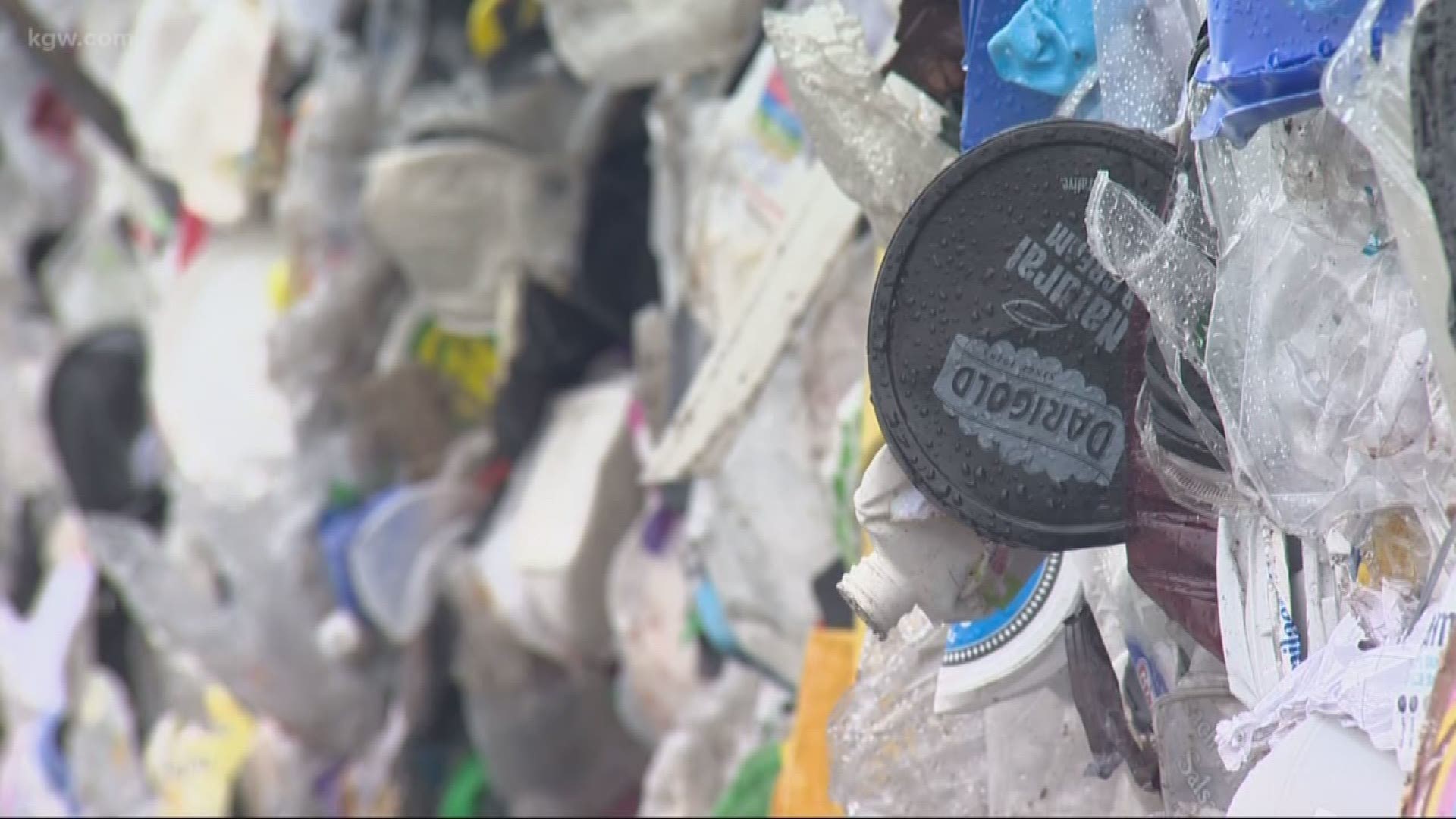Shredded paper, egg cartons, milk boxes and most plastic containers are all about to be banned from Marion County’s blue bins.
The county’s 17-year-old curbside recycling program is scaling way back on items it will accept, in response to China’s refusal to take most recyclable materials from the West.
Beginning Monday, those items and more should be thrown in the trash, said Brian May, the county’s Environmental Services Division manager.
“It’s going to be huge,” May said. “Residents of Marion County are very big recyclers. We know it’s going to be a huge change to our nature.”
On Jan. 1, China stopped allowing many materials to be imported for recycling, saying contamination levels were too high. China was the world’s largest importer of recycled paper and plastic, and took most of Oregon’s recycling.
About half of Marion County’s recycling goes to Salem’s Garten Services, with the rest heading to Pioneer Recycling Services in Portland.
Both recyclers are among 16 statewide that have received special permission from the Oregon Department of Environmental Quality to send recyclable materials to the landfill.
“Our warehouse was filled up to the point where it was unsafe. We ended up having to stick some stuff outside. We didn’t have a choice,” said Will Posegate, Garten’s chief operations officer. “But the stuff doesn’t stop coming in.”
Among the new no-nos:
- Shredded paper. Junk mail, greeting cards and other paper still is accepted, but if it’s shredded, keep it out, Posegate said. And don’t toss in a brown grocery bag full of paper. The bags are recycled separately, so dump them out, fold and put in on their own.
- Plastic jars such as peanut butter or mayonnaise containers, and plastic cups, such as yogurt, salsa, cottage cheese or hummus containers. Only 12 ounce or larger beverage containers or soap and cleaning product bottles are now accepted.
- Egg cartons.
- Take-out clamshells, aseptic milk and food containers, and freezer food packaging. “Anything in the fridge or freezer that touches food at all, throw it away,” Posegate said.
Even before China’s crackdown, contamination of recyclables was a huge problem. At Garten Services, between 9 percent and 13 percent of everything coming in the door is trash that Garten must pay to dispose of, Posegate said.
The top contaminant: Dirty diapers. Other common items include shoes, clothing, kiddie pools, garden hoses, huge metal parts, and pots and pans, Posegate said.
People may think Garten employees will pick out the items and dispose of them properly, he said, but that’s not the case.
“We’ve got a thousand tons of this stuff coming out of a truck that crushes it all,” he said. “Maybe we’ll find that bowling ball, but come on. People have gotten way out of line with what they put in there.”
Officials aren’t expecting customers to catch on to the new rules right away.
“This change in the markets happened so fast that we don’t even have updated literature, so we don’t expect customers to be 100 percent compliant overnight,” said David Lear, general manager of the Mid-Valley Garbage and Recycling Association.
But they would like customers to do their best, and certainly to keep garbage out of the blue bins.
“Please be strict with that list,” Posegate said. “Or you’re just giving your trash to someone else to deal with.”
tloew@statesmanjournal.com, 503-399-6779 or follow at Twitter.com/Tracy_Loew
Recycling changes
Beginning March 5, only the following items are allowed in the mixed recycling roll cart:
- Paper: Newspaper, including inserts; corrugated cardboard; magazines and catalogs; junk and direct mail; cereal and other small boxes; and office paper.
- Other fibers: Corrugated cardboard boxes, cereal boxes, cracker boxes and shoe boxes.
- Metal cans: Steel, tin and aluminum cans.
- Clean plastic: Beverage bottles that are 12 ounces or larger; soap, shampoo and cleaning solution bottles; and milk, juice and detergent jugs.
There are no changes to the rules for the red bin.

